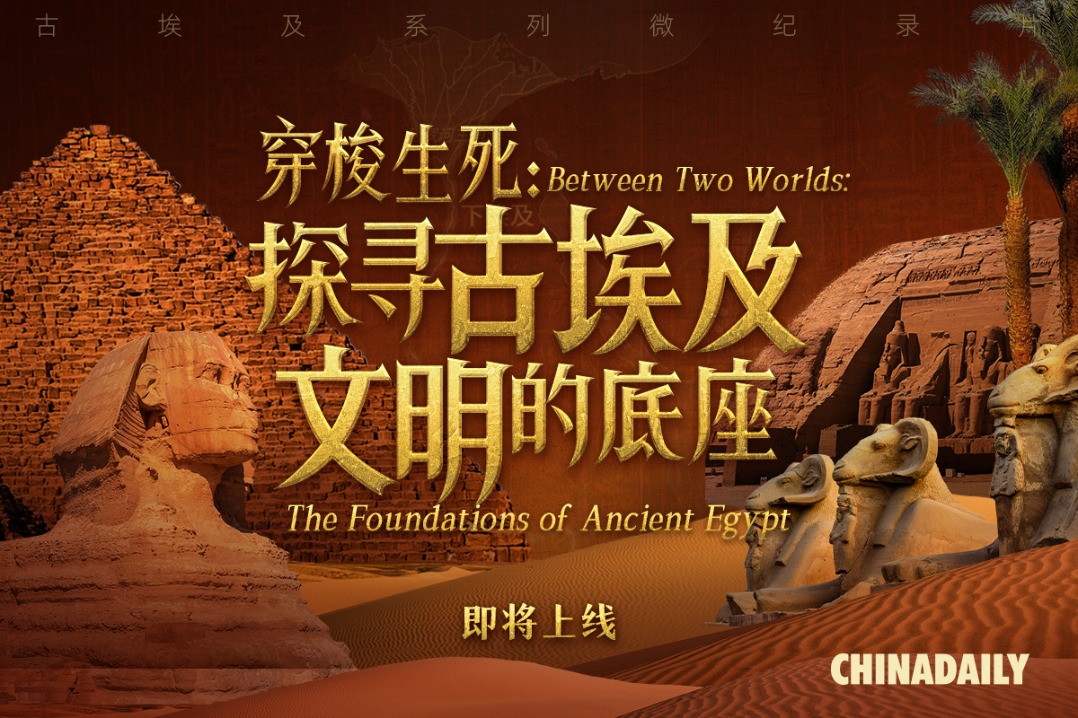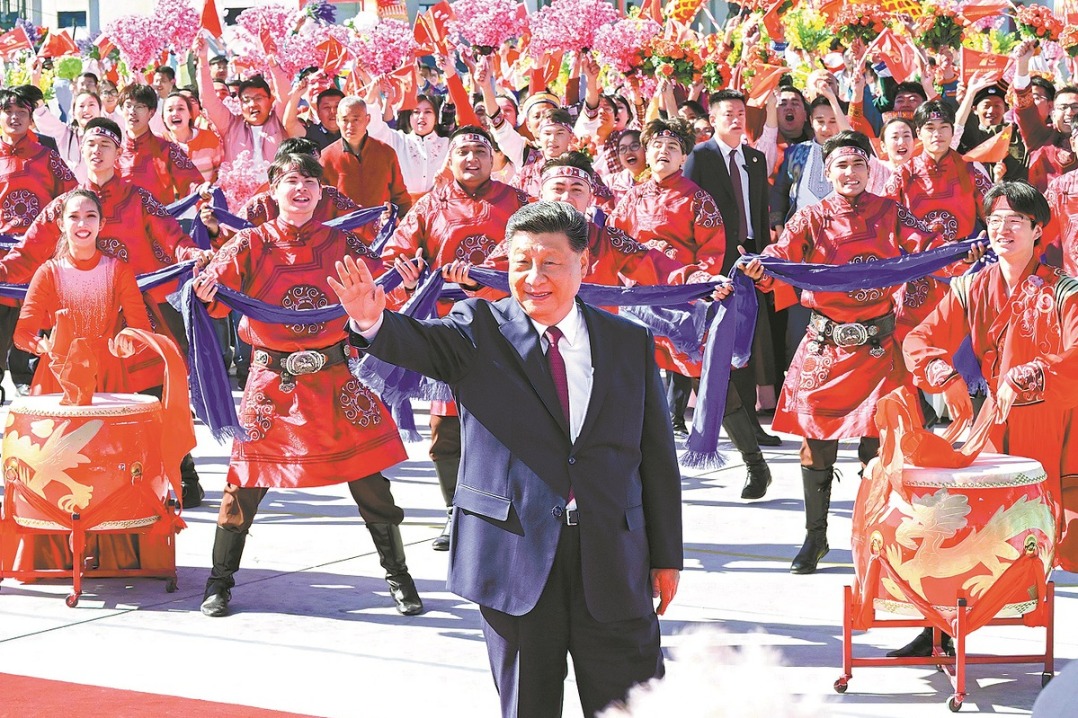GGI can address global governance deficit


The Global Governance Initiative, proposed by Chinese President Xi Jinping at the recent Shanghai Cooperation Organization Summit in Tianjin and based on the principles of sovereign equality, international rule of law, multilateralism, people-centric approach and real results, is another significant contribution to global public goods.
Together with the Global Development Initiative, the Global Security Initiative and the Global Civilization Initiative, the GGI offers Chinese solutions to the challenges faced by the world in an era defined by changes. The four initiatives are mutually reinforcing, and promote good, effective global governance, which is essential for realizing common development, universal security, and smooth exchanges among civilizations.
The world stands at a critical crossroads, requiring countries to choose between continuing on the path of peace, development and cooperation, and resorting to bloc confrontation and triggering a new Cold War.
In these times of rapid global changes, the postwar international system is being undermined by unilateralism and geopolitical tensions, fueling global disorder. The United Nations Security Council is unable to help resolve the conflicts in Ukraine and Gaza. The 2030 Agenda for Sustainable Development is severely lagging behind due to pandemics, regional conflicts and reduction in development aid by the Western powers. Global climate governance, too, faces uncertainties following the United States' withdrawal from the Paris Agreement, and hindrance to the European Union's green policies.
On the other hand, the global governance system faces the crisis of representation, legitimacy and effectiveness, leading to governance deficit and lack of effective governance in fields such as cyberspace and outer space. In particular, the underrepresentation of developing countries in global governance is acute. Quotas and voting rights in the International Monetary Fund and the World Bank are disproportionately allocated to the US-led Western powers. The "Green Room meetings" at the World Trade Organization — where a select group of core members negotiate draft solutions before consulting the broader membership — and the donor-recipient model dominated by the Organisation for Economic Co-operation and Development have eroded the autonomy of developing countries.
At this critical juncture, which coincides with the 80th anniversary of the establishment of the UN, the GGI offers the right direction for global governance. The initiative does not aim to create a new system outside the current international framework; rather, it seeks to strengthen the principles and the right practices of the existing international order.
The GGI's concept document emphasizes that the postwar system with the UN at its core, the world order underpinned by international law, and the basic norms of international relations based on the UN Charter have helped maintain global peace and promote development. The GGI's five core principles — especially adhering to sovereign equality, abiding by international rule of law and upholding multilateralism — show its allegiance to the international order.
As a defender, participant and contributor to the existing international system, China has been playing a significant leadership role in global development governance. The China-proposed Belt and Road Initiative and Global Development Initiative are helping reshape global development while adhering to the principles of inclusivity, equity, mutual benefit and cooperation. It is also helping realize the 2030 Agenda for Sustainable Development.
In areas such as global economic and climate governance, China has consistently upheld multilateral mechanisms, despite the US' withdrawal from international organizations and treaties, and undermining of the UN-centered system. In such circumstances, revitalizing global governance requires a return to the correct path, which is exactly what the GGI promotes.
In addition, the widening deficit in global governance highlights the lack of representativeness, legitimacy and effectiveness in governance mechanisms, making innovation and reform imperative. The "America First" strategy and zero-sum mindset undermine trust among major powers and hamper mutual coordination, while unilateralism impedes multilateral governance, risking the fragmentation and dysfunction of the global governance system.
To cope with such challenges, the GGI advocates following people-centric policies and realizing real results in the interest of all. By adhering to the principle of seeking common ground while shelving differences, adopting an action-oriented approach, and promoting practical cooperation, the GGI is a major innovation in global governance.
The GGI is not designed to fill any vacuum left by the US or replace any country's role in global governance. Rather, it demonstrates China's sense of responsibility and commitment as a major country. The decline of the US' position in global governance is the result of its own actions. Since taking office in January, the US administration has repeatedly shied away from its international responsibilities, significantly reduced its international aid, and undermined the WTO-centered trade system with its tariff policies, which have eroded its credibility in global governance.
According to a Pew Research Center survey in June, the positive perception of the US has declined significantly in 15 countries since last year, with Sweden having the lowest approval rating. While 79 percent of Sweden's population has an unfavorable opinion about Washington, more than six in 10 adults in Canada and Mexico view the US negatively, a sentiment shared by the majority in Australia, France, Germany, the Netherlands, Spain and Turkiye.
China has consistently urged major countries, including the US, to fulfill their due global responsibilities, and contribute more to global resources and public goods.
No single country alone can fill the deficit in global governance, and the roles of countries in global governance are interdependent and mutually reinforcing. China's call for increasing the representation of developing countries in global governance does not mean diminishing the influence of Western countries. Instead, it serves as a corrective measure to address the current underrepresentation of developing countries in the global governance mechanisms, making global governance more inclusive and democratizing international relations, in order to build a community with a shared future for humanity.
The author is director of the Department for Global Governance and International Organizations at the China Institute of International Studies.
The view


































